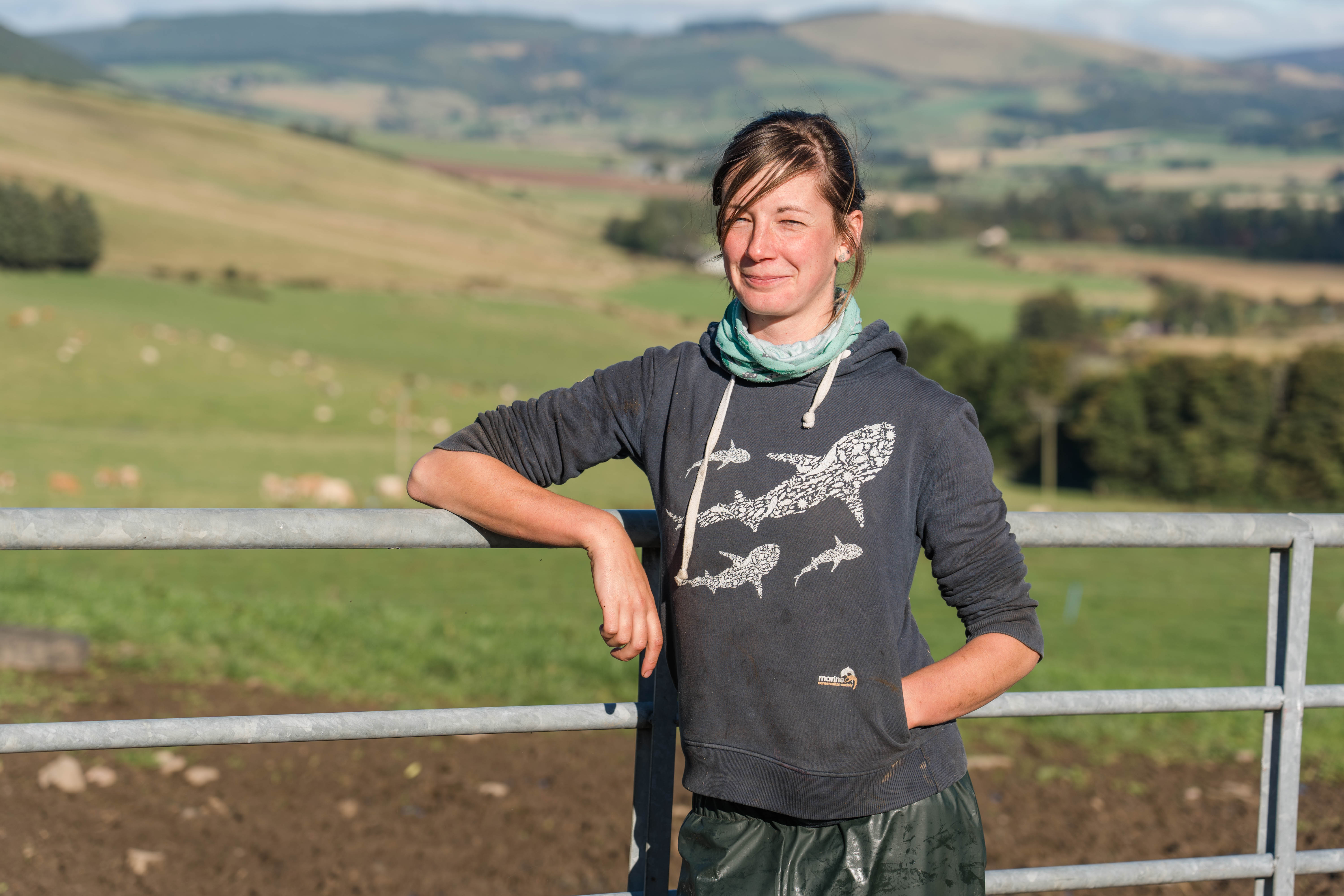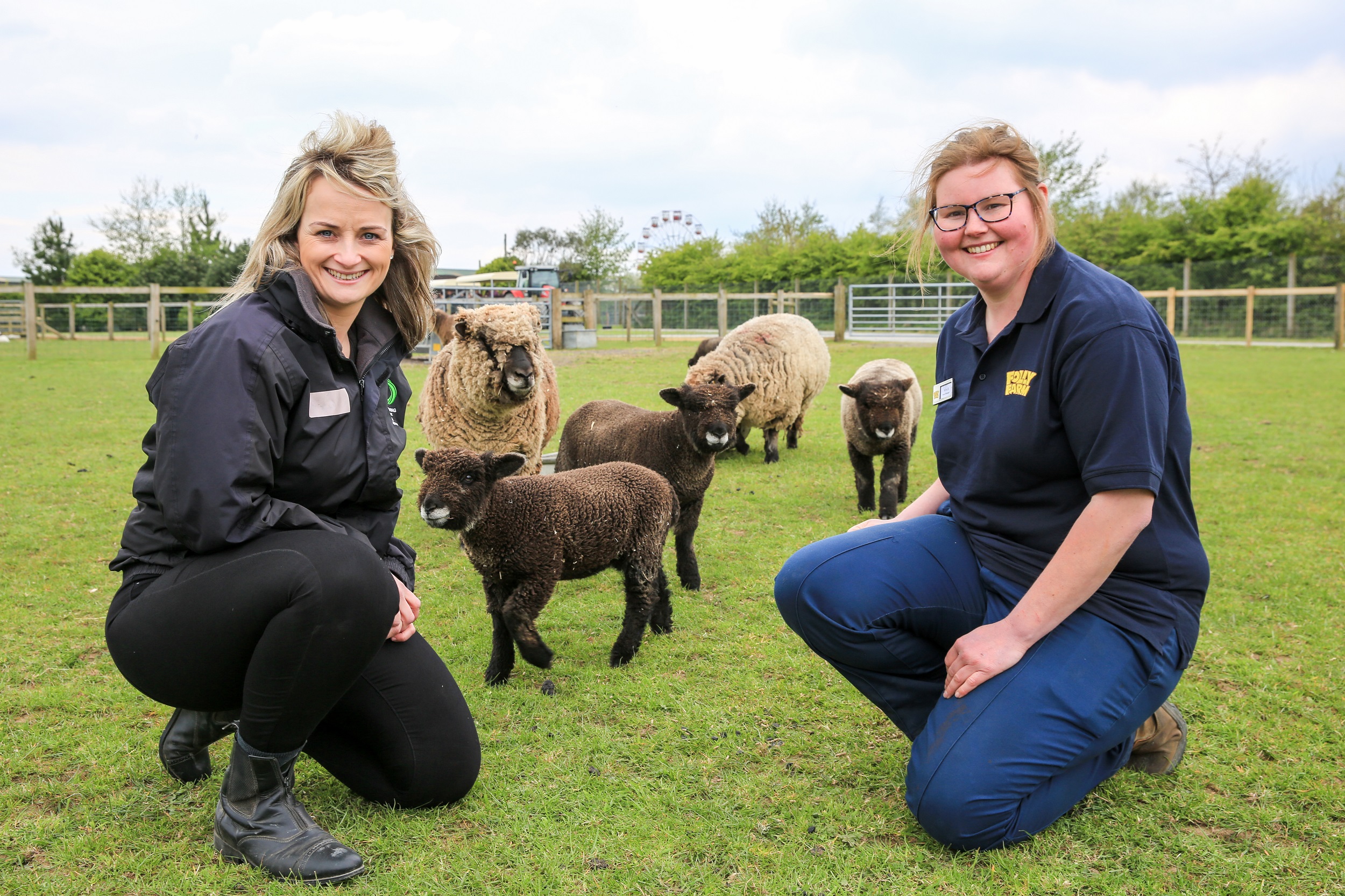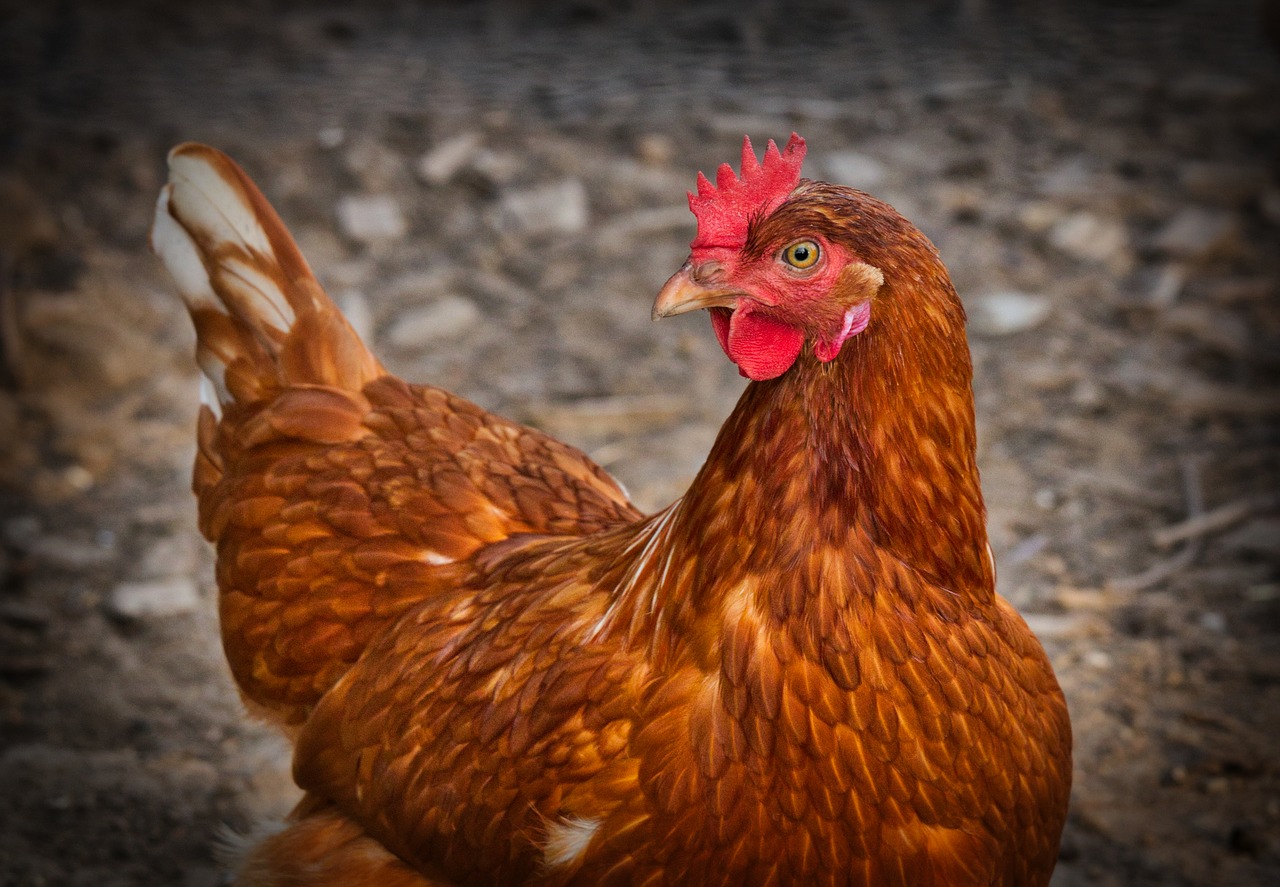

Kirsty Muirden runs an agriculture business called the ‘This Farming Quine’, splitting her time between a 1287 acre organic hill farm and her family’s 700 acre commercial mixed arable and livestock farm. As if that wasn’t enough, she also looks after her own flock of sheep.
Kirsty didn’t follow a conventional route into farming. She spent the first half of her career as a community worker for her local authority and the NHS, but over time realised that it wasn’t giving her the job satisfaction that she wanted. Kirsty had been helping out on the family farm part-time, but in January 2020, she decided to quit her job and take up farming as a full-time job, which was a life changing decision.
Kirsty said: “I had reached a crossroads in my career and it had been in the back of my mind to take up farming full-time, so I went along to a ‘Women in Wellies’ event run by the Cairngorm National Park. I met some like-minded people there who encouraged me to give it a proper go, despite my lack of skills and experience, and since then, I’ve never looked back.”
As fate would have it, on her way home from the meeting, she noticed a sign on a local organic vegetable farm looking for volunteers. Kirsty put her name down and then managed to land a short-term job there, providing her with valuable experience.
She said: “'Working at the vegetable farm allowed me to gain wider experience and opened up other local farming opportunities for me.'
Kirsty has recently been adding to her skills thanks to funding from a practical training fund for women available from the Scottish Government through Lantra. She is currently doing a tractor driving course at SRUC Craibstone and said: “If there’s one thing I’ve learnt about farming, it is that you have to be a Jack of all trades. I’ve learnt so many new skills since I started and I’m only too aware that my learning has only begun.”
She went on to add: “I think the one skill that’s incredibly important is the ability to listen. Farming is such a multi-faceted and potentially hazardous profession and so gaining knowledge from those who have been doing it for years is absolutely vital.”
Over time Kirsty has been building up her experience across all aspects of farming. Her the daily tasks can vary enormously and are very much dependent upon the seasons. She said: “Winter is largely spent feeding and housing livestock. I also do some groundwork on the home farm, clearing parks so we can plough them for sowing the following year”.
“Spring is lambing season and a time for rolling the parks and seed bed after sowing. I also get involved in tagging and ringing calves on the hill farm”.
“In Summer we get the silage pits and carts ready, roll the grass, cart silage, and turn hay. Autumn is mainly about the harvest so I spend a lot of hours carting grain. This is also the time to get things in order sheep-wise for breeding, so there’s a few jobs around that.”
Since changing careers, Kirsty has found happiness and true sense of satisfaction. Although it has been physically and emotionally challenging at times, the chance to work outdoors doing different things has made her move into farming well worth it.
Being self-employed has also been beneficial for Kirsty, providing the flexibility to choose her own path and develop the business in her own way. Kirsty said: “The best part of being self-employed is the flexibility to take your career in the direction you want it to go and play to your own strengths. My business is still in its infancy so I am currently exploring different avenues, but at least I have the freedom to follow the path that’s right for me.”
As Kirsty suggests, being self-employed also comes with its challenges. She said: “It’s definitely less financially secure and you have to be self-motivated to make it work. And, if you’re not working, you’re not earning, so there’s a pressure there. There are also many skills you need to learn to run the business yourself. I find the accounting side a challenge, but I have a friend who is helping me out. One thing I’ve learnt is you mustn’t be afraid to reach out and ask for support.”
Kirsty also talks about the mental health benefits of having a physically active job that gets you outdoors and connected with nature. She said: “I have suffered with poor mental health in the past but now find that being in a job that gets me outside every day, where I am physically active and responsible for animals, has really helped me. I am certainly the happiest I have ever been in a job and whatever happens moving forward, I won’t regret making the leap into agriculture.”
Farming is not for the feint hearted and comes with its fair share of challenges, but as Kirsty describes, the industry offers so much in terms of skills development, job satisfaction and doing something that genuinely feels worthwhile.
She said: “Farming as a career is not an easy choice. It pushes you mentally and physically. You do have to be resilient and there are hard days where you think about giving up. But you will never be bored. You will laugh, cry and experience all sorts of emotions – sometimes in the same day. You will be immersed in beautiful scenery. You will achieve things you never thought were possible. You’ll feel more alive and appreciate the little things more, which is exactly what’s happened to me.”
“Farming is a fast-moving, progressive industry so there is always new science we need to be aware of and innovative, more efficient ways of doing things,” says Kim Brickell, a farm manager at one of Wales’ most popular family destinations, Folly Farm Adventure Park and Zoo, near Tenby.
Earlier this year, Pembrokeshire born Kim (30) was awarded the Farming Connect Animal Health & Welfare trophy at the Lantra Wales annual awards ceremony. The award was in recognition of her outstanding commitment to continuous professional development (CPD) and effectively applying her new knowledge and skills to what she describes as her ‘dream’ job
Kim says that Farming Connect’s fully-funded e-learning courses have enabled her to ‘keep up to speed in my own time and at my own pace’, which has not only increased her skillset but enables her to impart that knowledge to other members of the Folly Farm team coming up behind her.
“The range of support services available through Farming Connect, including Animal Health and Welfare workshops, open day events and very wide range of farm-related topics I’ve studied through e-learning have given me new skills and knowledge I utilise every day.”
Located on a main tourist route between Narberth and Tenby, Folly Farm runs to about 200 acres with a large proportion of the farmland open to the public. Attracting around 500,000 visitors a year, its world-class zoo is home to more than 100 species of exotic animals, birds and many other creatures. Kim’s role is to look after the health, welfare and general husbandry of the farm’s flocks of rare sheep and goats, speciality breeds of pigs and poultry as well as a large number of small petting animals.
Although not brought up on a farm, Kim’s love of the outdoors and animals started at a young age and while still a sixth former, she helped out at Folly Farm in her spare time. The entrepreneurial dairy farming family who have built up Folly Farm into the multi-million pound business it is today, quickly spotted her dedication and ability. After completing her A levels, she was appointed as a full time assistant, a role she combined with studying for a foundation degree in animal science at Pembrokeshire College. Since then it’s been a steady progression up through the Folly Farm ranks, as assistant supervisor, supervisor and now ‘living the dream’ as a farm manager, where Kim, along with a co-manager and team of six staff, is responsible for the smooth running of the agricultural and farm animal side of the business. She is also involved in the farm’s soil and grassland strategies, both topics she’s studied through Farming Connect.
“We operate a rotational grazing system, which has resulted in improved soil health and fertility through better manure distribution, as well as an increase in forage after each ‘rest’ period, so it’s a win-win situation for us as farm managers and all the stock which benefit from the outdoor life.
“Whatever Farming Connect e-learning topic you’re interested in is easily accessed and you know you will get the key information you need, pitched at the right level, in a clear and concise way.
“Each interactive module is targeted at people working within the industry, they all take about 20 or 30 minutes to complete and include a quiz at the end which gives you reassurance you’ve absorbed the information correctly, but if not, you simply do it again,” says Kim.
In the last 12 months, she has undertaken more than 20 different e-learning modules, combining them with various sector-specific webinars and workshops on what she says is a ‘need to know’ basis. She’s completed e-learning modules on animal health topics including anthelmintic resistance, biosecurity, quarantining stock and vaccinations as well as specific diseases and conditions that affect sheep, pigs and poultry.
“I also wanted to learn more about farm health and safety because as a manager, I need to be aware of the current legislation and guidance and encourage colleagues to prioritise working safely.
Kim says that the flexibility of e-learning ‘plus the fantastic bonus that there are no costs involved’ has enabled her to utilise any spare time she has.
“If there’s additional knowledge that I feel will help me in my job, I always turn to Farming Connect and my laptop first.”
Kim is a keen advocate of utilising Storfa Sgiliau, Farming Connect’s online data storage facility which records all her CPD activities and achievements, enabling her to identify any gaps in her skills and plan her future career progression. So what’s next for this ambitious young farmer?
“Sustainable farming is a key focus at Folly Farm and in addition to our biomass system and solar panels, we recycle most waste including nappies and plastic left by visitors.
“Next on my CPD agenda is to learn what else we can do to reduce our carbon footprint – through Farming Connect of course!”


When asked what motivated her to choose a career in the poultry industry, Alison recalls being passionate about animals from a young age. As a child she bred canaries and hand raised a rejected cockatiel. She even remembers wishing for pet ducks and chickens, however due to her living arrangements, it wasn’t feasible. Therefore, she was thrilled when she came across an ad in her local paper recruiting for a position in the poultry industry – the first step in getting her career in the sector started.
With experience in the poultry industry, great knowledge of poultry husbandry and pedigree birds, Alison knew that doing an Apprenticeship with Cobb would give her the opportunity to widen her exposure to the industry and further her career. She described her Apprenticeship journey as interesting, fulfilling and eye opening with the training being relevant to her work which overall inspired her confidence.
Alison described the best thing about her Apprenticeship was the way in which her assessments challenged her to search for information and answers she didn’t already know. Her tutors were always a great support to her, as well as her colleagues and Cobb, who were always at the other end of the phone in case she ever required information or help with her coursework.
Alison did come up against some challenges during her Apprenticeship journey. Unfortunately, due to the pandemic and Covid-19 restrictions, Alison was not able to have farm assessments with her tutors or attend in person courses. However, that did not stop her from giving 110% to her studies, and now has the confidence to lead her team with the knowledge and skills she gained from her Apprenticeship.
Alison’s tutor from Poultec Training Limited, Nathan Raines explained how she relished the opportunity to develop her knowledge and skills. “Alison showed an excellent attitude towards the training programme and was also keen to learn about as many aspects to the industry as possible. It has been a pleasure to be Alison’s tutor throughout her programme and watch her confidence increase and see her flourish in her new role as Farm Manager.”
When asked about her future career aspirations, Alison tells us she plans on establishing her position at Wickman House by putting into practice everything she has gained from her Apprenticeship journey. In addition, she plans to continue to help develop the farm as well as share everything she has learnt with her team to enable them to do a good job with great understanding of the poultry industry.
Dairy Farmer Brian tells us about his job, the benefits of employing and training people in his business and how he uses technology to work more efficiently.